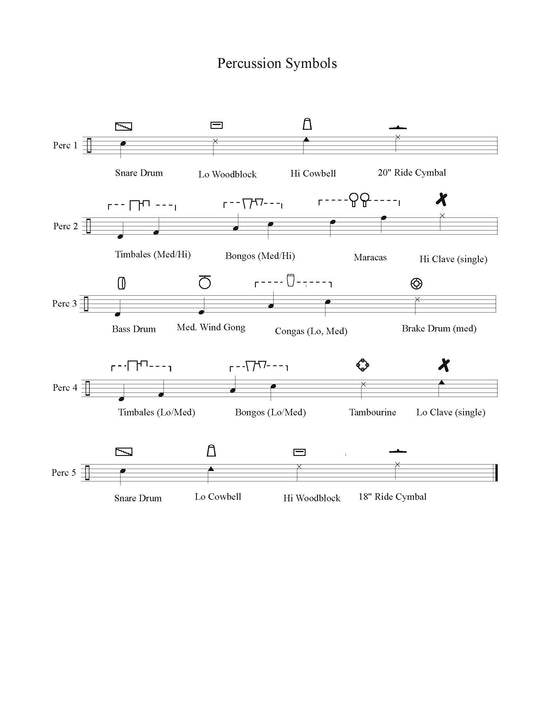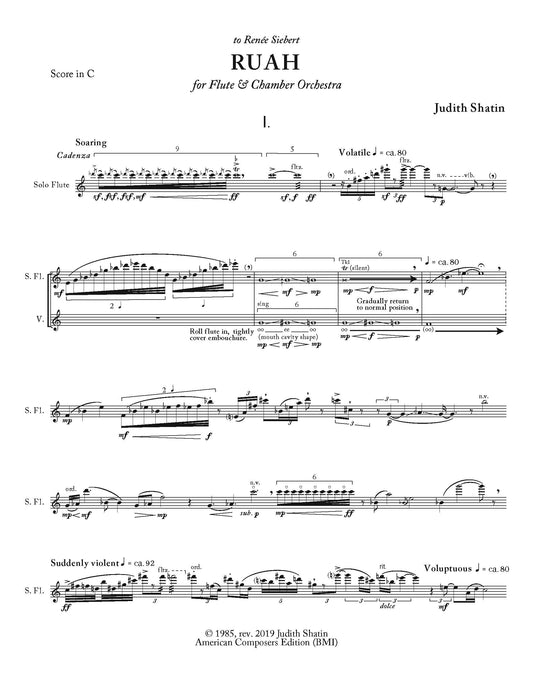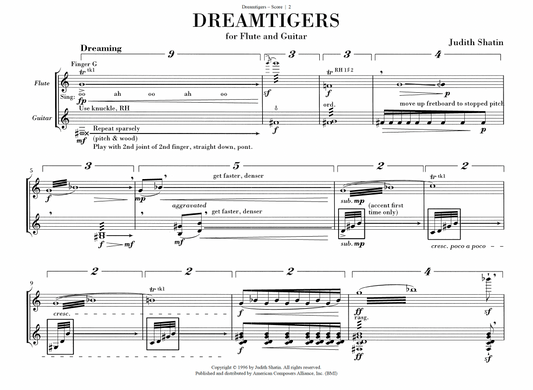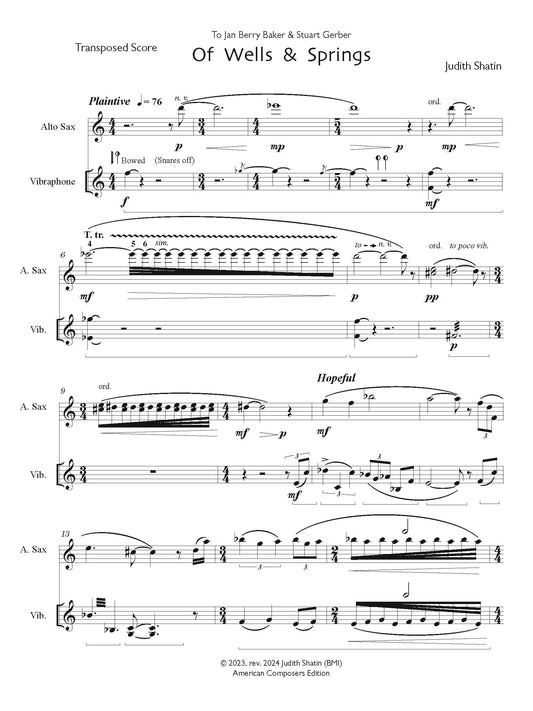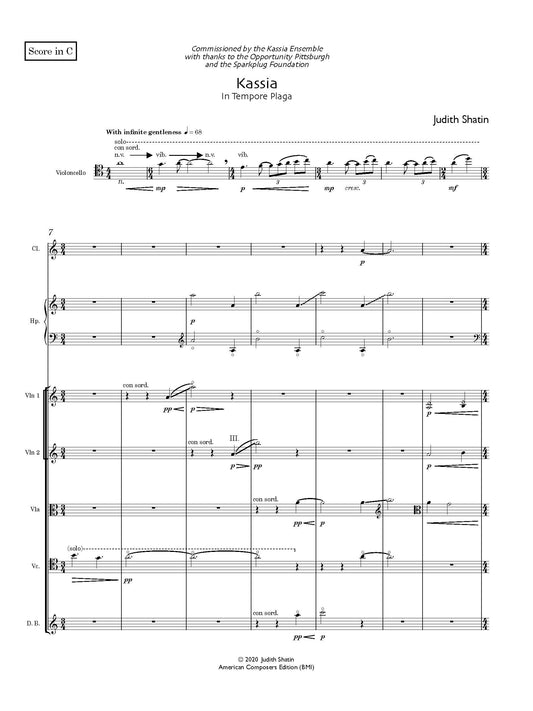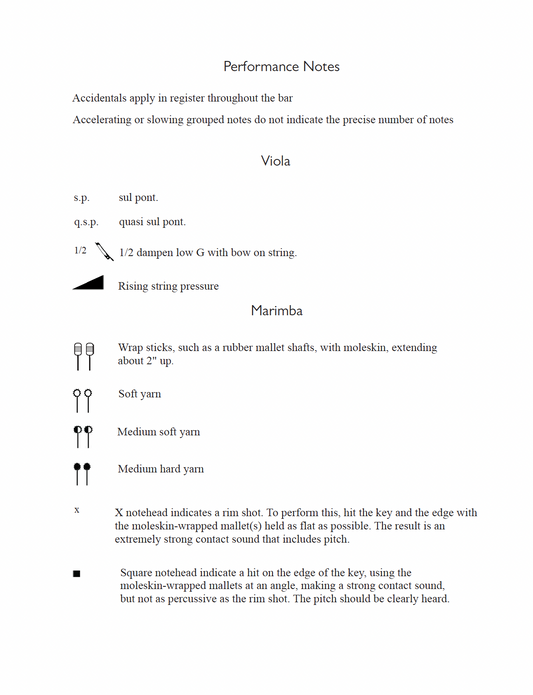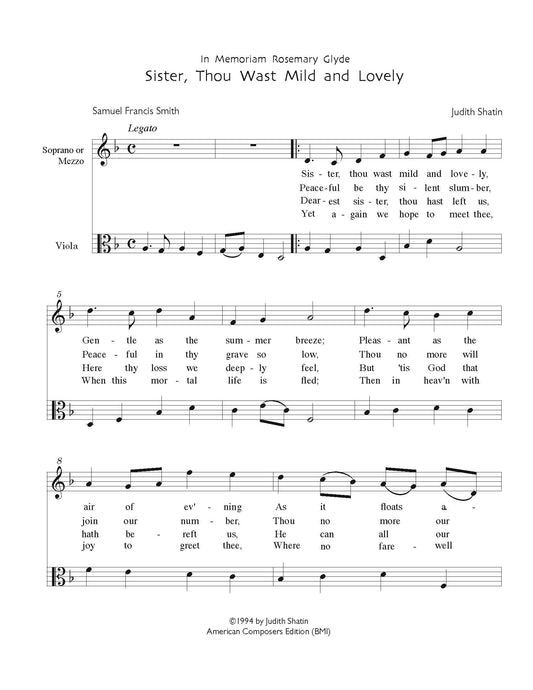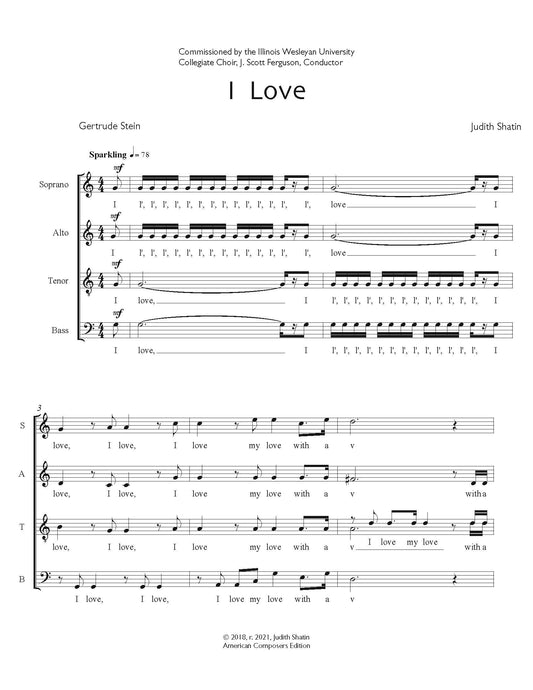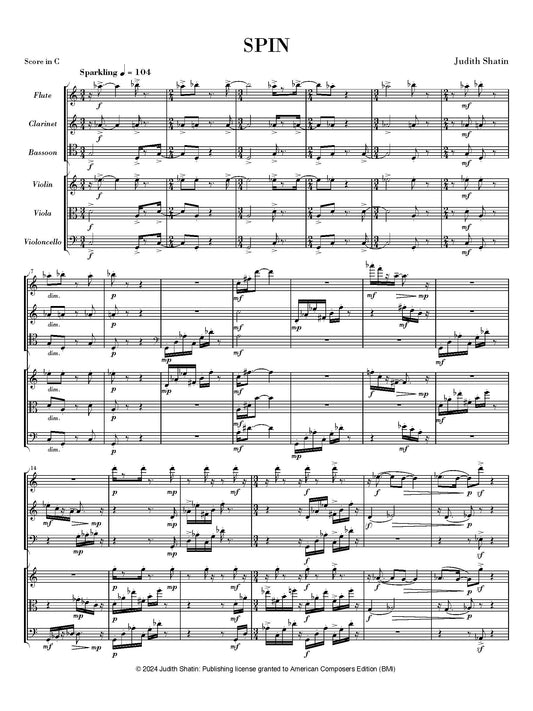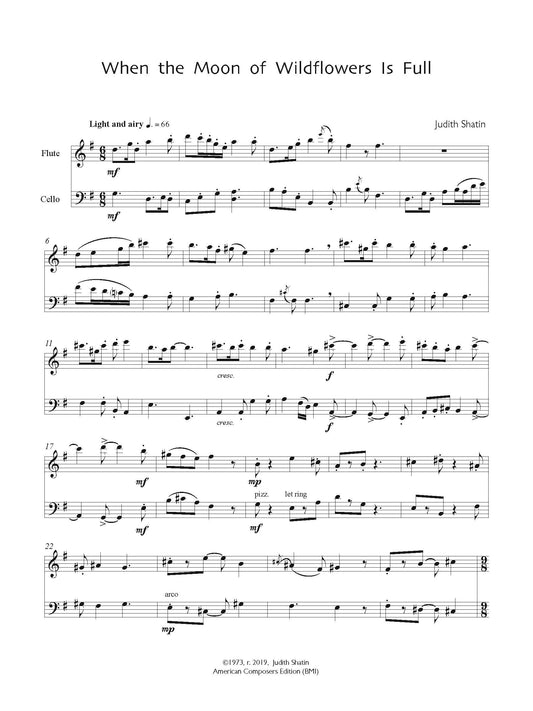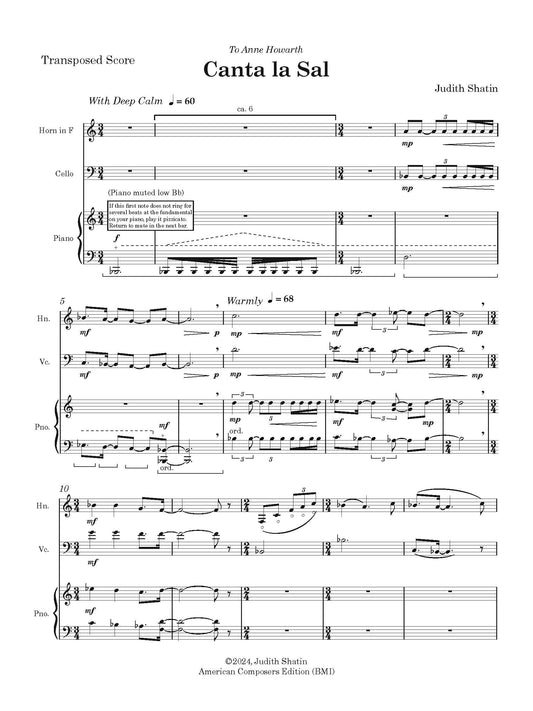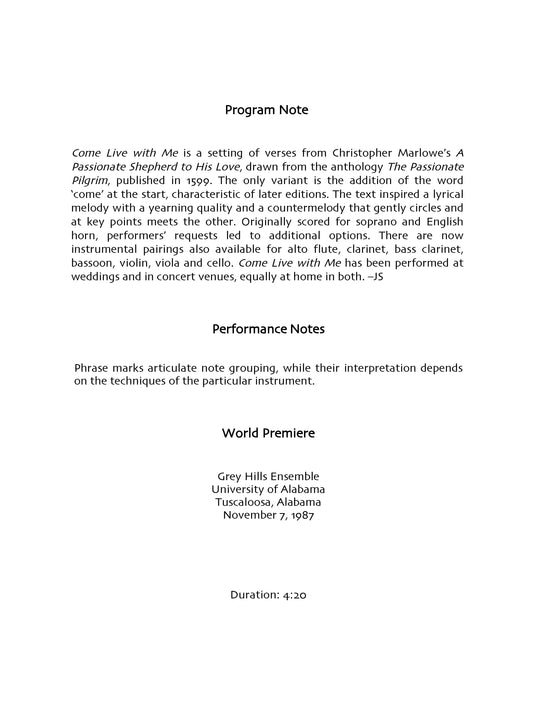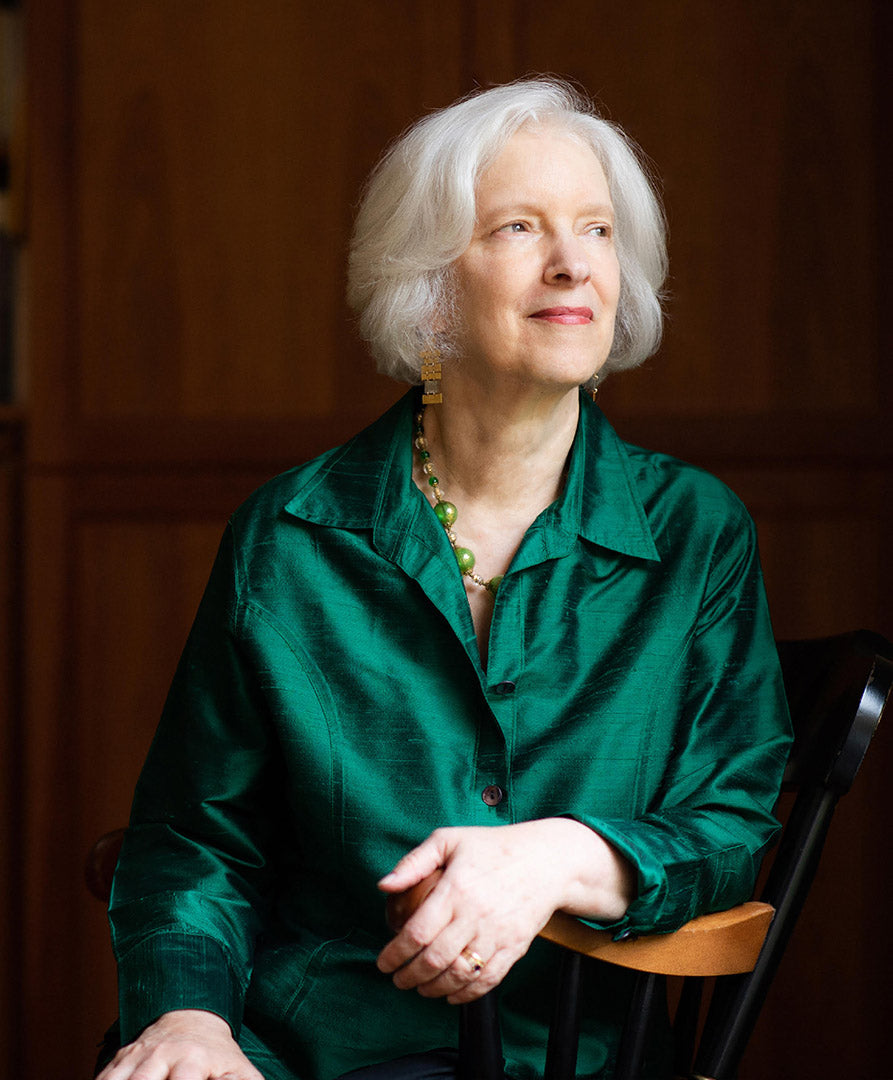
Shatin, Judith
1949 -
A distinctive voice in American music, Judith Shatin (www.judithshatin.com) is a composer whose music responds to the world around us – from the immediacy of daily life to environmental issues and cultural wonders. Her music combines an adventurous approach to timbre with dynamic narrative design. She draws on expanded palettes and a cornucopia of the sounding world, from acoustic instruments to the calls of animals, the shuttle of a wooden loom, the pull of a zipper. Collaboration is central to her practice and a source of great delight.
Described as “powerful and distinctive” by Fanfare and “both engaging and splendidly controlled” by the San Francisco Chronicle, Shatin’s music has been commissioned by organizations such as the Barlow Endowment, the Fromm Foundation, Carnegie Hall, and The Library of Congress, and by acclaimed ensembles including Kronos Quartet, Da Capo Chamber Players, the Dutch Hexagon Ensemble, the San Francisco Girls Chorus, and the Young People’s Chorus of NYC. The National Symphony and American Composer’s Orchestra have programmed and commissioned her music, as have the Illinois, Richmond and Virginia Symphonies. Her compositions are performed in concert halls around the world, such as Carnegie Hall, The Concertgebouw, The Kennedy Center, Konzerthaus Berlin, and Tel Aviv Opera house and is recorded on more than thirty albums.
The recipient of four National Endowment for the Arts Composer Fellowships and grants from the American Music Center, Meet the Composer and the Virginia Commission for the Arts, Shatin also garnered major support from the Lila Wallace Readers Digest Arts Partners Program for the creation of her folk oratorio COAL, scored for Appalachian band, chorus, keyboard and electronics.
A distinguished teacher, Shatin is regularly invited to serve as mentor and guest composer by institutions such as the Atlantic Center for the Arts, the Bennington Chamber Music Conference, New Music on the Point and the Wellesley Composers Conference. Shatin is William R. Kenan, Jr. Professor Emerita at the University of Virginia, where she founded the Virginia Center for Computer Music.
-
-
-
-
-
-
Judith Shatin
Piping the Earth
Orchestra 3(3+picc)3(3+EH)3(3+bcl)3 - 4321 - timp, 3 perc, hp - strings
$53.00 - $70.50 -
-
-
-
-
-
-


